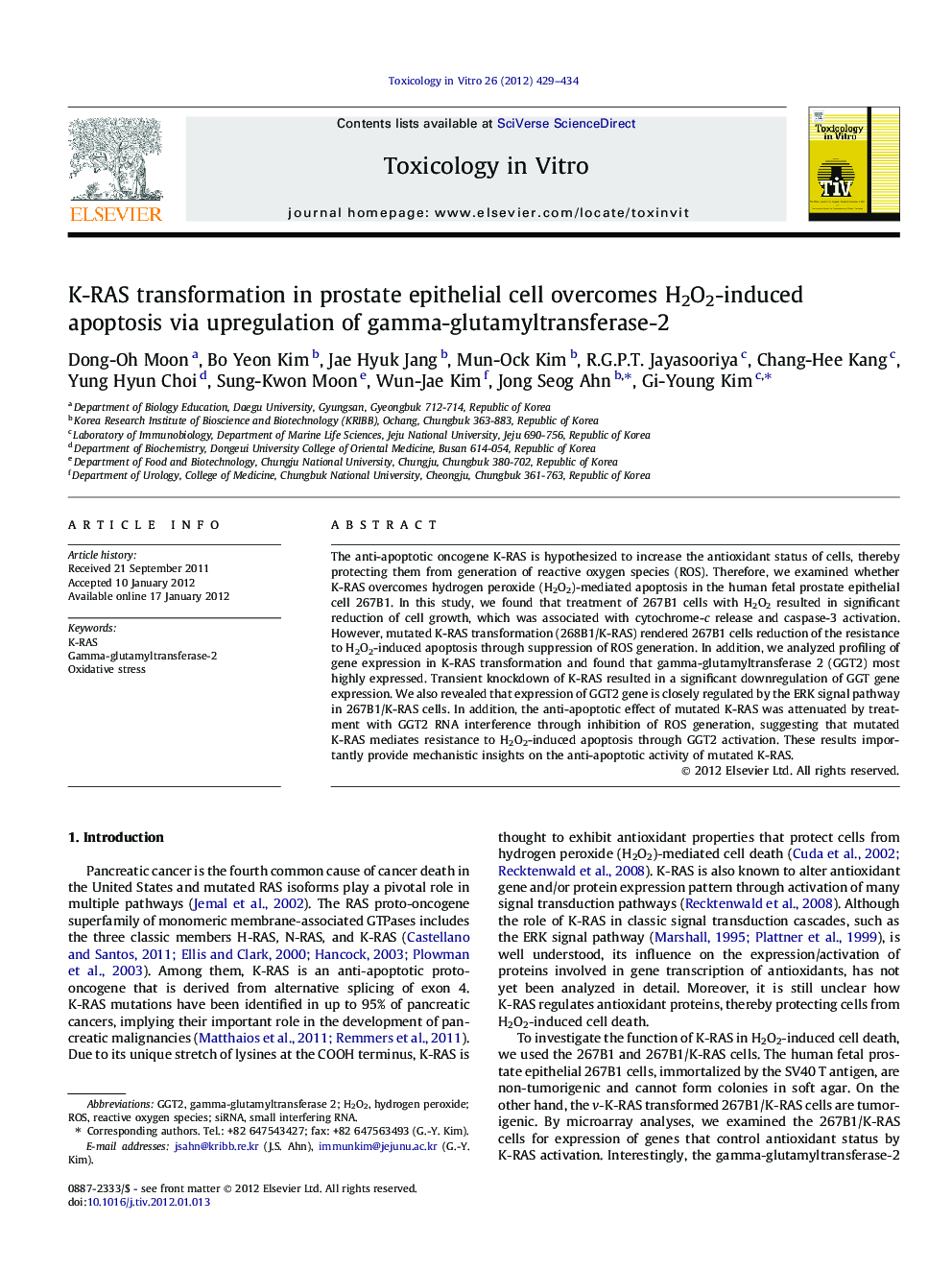| Article ID | Journal | Published Year | Pages | File Type |
|---|---|---|---|---|
| 2602665 | Toxicology in Vitro | 2012 | 6 Pages |
The anti-apoptotic oncogene K-RAS is hypothesized to increase the antioxidant status of cells, thereby protecting them from generation of reactive oxygen species (ROS). Therefore, we examined whether K-RAS overcomes hydrogen peroxide (H2O2)-mediated apoptosis in the human fetal prostate epithelial cell 267B1. In this study, we found that treatment of 267B1 cells with H2O2 resulted in significant reduction of cell growth, which was associated with cytochrome-c release and caspase-3 activation. However, mutated K-RAS transformation (268B1/K-RAS) rendered 267B1 cells reduction of the resistance to H2O2-induced apoptosis through suppression of ROS generation. In addition, we analyzed profiling of gene expression in K-RAS transformation and found that gamma-glutamyltransferase 2 (GGT2) most highly expressed. Transient knockdown of K-RAS resulted in a significant downregulation of GGT gene expression. We also revealed that expression of GGT2 gene is closely regulated by the ERK signal pathway in 267B1/K-RAS cells. In addition, the anti-apoptotic effect of mutated K-RAS was attenuated by treatment with GGT2 RNA interference through inhibition of ROS generation, suggesting that mutated K-RAS mediates resistance to H2O2-induced apoptosis through GGT2 activation. These results importantly provide mechanistic insights on the anti-apoptotic activity of mutated K-RAS.
► K-RAS transformation attenuates H2O2-induced apoptosis. ► K-RAS transformation induces upregulation of GGT2. ► GGT2 silencing by RNA interference sensitizes K-RAS/267B1 cells to H2O2-induced apoptosis.
